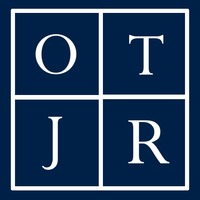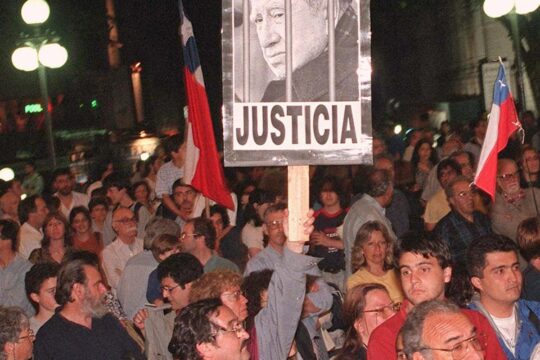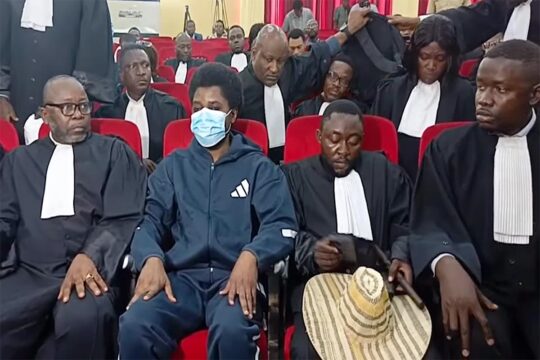The economic inequality of today in Chile, with all its political, social and cultural implications raised by the massive and permanent protests observed through the whole country during the past two months, finds its origin in the most violent period in the country's history and is projected as a shadow on its future.
The rationale of the dictatorship in Chile was primarily economic. The 1973 military coup, the consolidation of the dictatorship and the atrocities that this government committed until 1990 had the purpose of creating the necessary conditions for the implementation of economic policies that would benefit a minority in Chile and abroad and, consequently, would be rejected by a large part of the population.
However, the role of entrepreneurs and businesses’ involvement in the dictatorship has been virtually absent from public debate. As explained by the International Commission of Jurists (ICJ) in 2008, the concept of economic accomplices concerns contributions that make crime possible, easier or more efficient. Following the ICJ definition, we refer to “business complicity in human rights abuses” to describe undesirable business involvement in such abuses, considering that even “where a company does not actively wish to contribute to gross human rights abuses, it may still be legally responsible if it knew or should have known that its conduct was likely to help cause such abuses”.
This does not mean that every economic actor who has in some way contributed to the consolidation of the dictatorship must now face a criminal penalty. There was a wide range of complicit actions, including: commanding the intelligence agency (Dirección de Inteligencia Nacional - DINA) to assassinate trade union leaders; the provision of premises and lorries for kidnapping and torture; financial assistance provided to the government with little questioning; the manipulation of news reporting to ensure the impunity of criminals; and the development of scientific arguments to justify policies of exclusion and/or repression.
Why is economic support to an authoritarian government crucial?
While accountability is a central pillar for the consolidation of peace, justice and democracy, the debate must go beyond the strict framework of legal responsibility. This paper and the book that we have recently launched broaden the scope of the narrative on the Pinochet dictatorship and provide basic principles for considering the responsibility of economic accomplices. It also encourages reflection on how the objectives linked to truth, memory, reparations and non-repetition measures could (and should) consider the role of businesses, entrepreneurs and the economic policies driven by the government.
Authoritarian governments suffer from a structural deficit of legitimacy. Therefore, their remaining in power is subject to the balanced use of two types of resources: buying people’s trust and establishing an efficient repressive system. Both require financial resources.
The Pinochet government obtained massive external financing thanks to its immediate international geopolitical alignment in the fight against communism. This ensured a continuous and sufficient flow of funds even in a context of low growth, high unemployment and fiscal deficit.
More generally, the instruments and channels through which economic resources were allocated in a strategic way – that is, to gain support from powerful sectors of Chilean society – included tax, budgetary, industrial, forestry, extractive banking and financial, monetary, foreign trade and privatization policies.
Clearly, the military had their own ideological/political agenda to access and stay in power: to destroy communism, restore social order, depoliticize the population and increase military spending. From this perspective, it can be said that the military used businessmen to perpetuate themselves in power.
Yet, the integration of highly technical teams in the Pinochet government through representatives of business sectors indicate that it is difficult to identify who was the ‘perpetrator’ and who was the ‘accomplice’. Did the government grant economic benefits to these business groups in order to stay in power, or did they support Pinochet to apply the above-mentioned policies? The answer to this question can lead us to rethink the direction of complicities.
The Cassese report conclusion
The commission of economic crimes and acts of corruption that benefited both military personnel, civil servants and businessmen was another effective tool for allocating resources and buying loyalties. The latter materialized, for example, in explicit political support for the government (as evidenced by business chambers) or, at least, in the silence in the face of crimes against humanity that were being committed. The complicity of journalists, media, think tanks and academics is explained not only by clear political and ideological alignments, but also by the material benefits they received. This micro dynamic had a macro correlate. The radical and rapid transfer of national wealth (after the coup) in favour of the entrepreneurial class and to the detriment of the working class – which brought on an abrupt increase of socio-economic inequality – was the result of the imposition of neoliberal economic policies.
The virtuous link between repression and concentration of wealth, is not brand new information. Antonio Cassese, Special Rapporteur appointed in 1977 by the United Nations Commission on Human Rights with a specific mandate to assess the relationship between the financial assistance received by the Pinochet regime and human rights violations that the Chilean population was experiencing at the time, presented a detailed official report in 1978. His main conclusion was that “[t]he foreign financial assistance largely serves to strengthen and sustain the economic system adopted by the Chilean authorities, which in turn needs to be based on the repression of civil and political rights. The conclusions confirmed that the bulk of current economic assistance is instrumental in the consolidation and the perpetuation of the current repression of those rights”.
Responsibility of businesses: a long period under the radar
The post-dictatorship Chilean agenda of truth, memory, justice, reparations and institutional reforms has focused its discursive, legal, political and institutional resources almost exclusively on violent crimes, marginalising the role and possible responsibility of the economic accomplices of the Pinochet dictatorship. The debate on economic rationality that was present during the Pinochet dictatorship was limited almost exclusively to illicit enrichment, brought to light by the Riggs Bank scandal and its shady dealings with Pinochet and his family, and other state corruption cases.
This is not a phenomenon exclusive to Chile but is part of a general structural feature of transitional justice and international human rights law to lay responsibility mainly on states and their agents. The responsibility of businesses and their owners who facilitate and/or benefit from authoritarian governments has, in the past, remained off the radar of transitional justice. Even though the Nuremberg trials contended with the responsibility of business owners who contributed to the Nazi regime, this responsibility later re-emerged in transitional contexts only in a sporadic and partial manner.
For various reasons, this sense of inertia is changing rapidly. On an international level, the work of the United Nations Human Rights Council, which has clarified corporations’ international obligations regarding human rights, has caused a change in the consistent legal paradigm in which only States must respect human rights. At a regional level, Argentina and Brazil have made progres in the implementation of human rights and transitional justice measures that explicitly cover economic accomplices.
Encouraging progress across Latin America
In Brazil, after years of pressure by civil society organisations, a truth commission was created in 2012 to investigate human rights violations committed between 1964 and 1988. Among other things, the report of the commission evidenced the role of individuals and companies that financed or supported the repressive structures. It further signaled the participation of businesses and entrepreneurs in torture, enforced disappearances and arbitrary arrests of workers and farmers.
Argentina has also started to investigate the role of the private sector during the years of dictatorship. There have been criminal cases against entrepreneurs for their role in the disappearances of their workers, such as the Ford, Techint and SIDERCA cases.
In this context, Olson, Payne and Reiter developed a quantitative study that led to two conclusions relevant to the incorporation of economic complicity in transitional justice mechanisms. The first is that the scope of transitional justice measures (e.g. extending them to civilian perpetrators) presents a link proportional to growth and economic development of the countries concerned. The second is that the chances of implementing conducive measures to attain the objectives of transitional justice become greater over time. In other words, they suggest that the Chilean political and economic system would not fall apart if the accountability radar picked up on economic accomplices.
This data is encouraging in the Chilean context and important changes are starting to happen. Recently, the Supreme Court of Chile sentenced Francisco Luzoro Montenegro (a businessman and former president of the Paine trade union of lorry owners) to 20 years in prison for the murders of farmers committed in the Paine commune in 1973, in conjunction with repressive state forces. Also, the Concepción Court of Appeals decided to prosecute four civilians (including two officers of the Chilean paper and pulp company CMPC, in addition to the company's security chief) for the execution of 19 people. These cases, however, remain isolated.
The transitional justice narrative requires considering the responsibility of economic accomplices, the role of companies and entrepreneurs, and the ways in which the economic policies promoted during the dictatorship are linked to current social justice problems. Although accountability is a central pillar for the consolidation of justice and democracy, the debate must exceed the strict framework of legal responsibility. That is especially true if we consider that the physiognomy of the current political, economic and social system was, in many respects, delineated and imposed by the dictatorship. Thus, the dictatorial legacy still represents a burden for Chilean society, which makes us think how past, present and future are intrinsically connected.
 OXFORD TRANSITIONAL JUSTICE RESEARCH
OXFORD TRANSITIONAL JUSTICE RESEARCH
This article has been published as part of a partnership between JusticeInfo.net and the Oxford Transitional Justice Research (OTJR), a network of high-level transitional justice researchers which is part of the University of Oxford. Justiceinfo.net publishes OTJR publications under the joint responsibility of its editor and OTJR.
Juan Pablo Bohoslavsky has a PhD in Law and has studied and conducted research at universities in Argentina, the United States and Europe. He is currently the Independent Expert on the Effects of Foreign Debt and Human Rights at the UN.
Karinna Fernández holds a law degree from the Valparaíso University, a Master’s in International Public Law from the University of Chile and a LLM in International Human Rights at the University of Essex. She has served as an advisor on matters of international criminal cooperation and extradition to Chile’s Public Prosecutor’s Office and as a legal advisor to the Interior Ministry. She is also an Associate Fellow of UCL’s Institute of the Americas.
Sebastian Smart holds a law degree from Pontificia Universidad Católica of Chile, a Master’s in Human Rights from University College London (UCL) and a PhD at the Institute of the Americas, UCL. He has worked for Civil Society Organisations and universities in Chile, Haiti and the United Kingdom.






